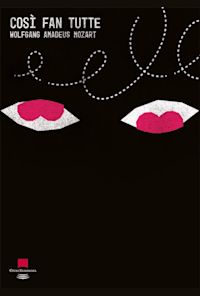Così fan tutte, Mozart
Dalīties
Così fan tutte by Mozart, Sv 27 jūn 2021, No (2021/2022), Režisēja Jerzy Stuhr, Diriģents Tomasz Tokarczyk, Opera Krakowska, Krakow, Poland
Skatās dalībnieki un komanda 27 jūn 2021
Producents
Conductor
Stage director
Lomās
Fiordiligi
KO(2021 mai 29, 2022 mai 06, 08; jūn 27)
Dorabella

(2021 mai 29, 2022 mai 06, 08; jūn 27)
Guglielmo
AS(2021 mai 29, 2022 mai 06, 08; jūn 27)
Ferrando

(2021 mai 29; jūn 27)
Despina
PM(2021 mai 29, 2022 mai 06, 08; jūn 27)
Don Alfonso
RG(2021 mai 29, 2022 mai 06, 08; jūn 27)
Radoša komanda
Lighting designer
Costume designer
Set designer
Translator
Chorus master
Choreographer
GK(2021 mai 29, 30; jūn 26, 27)
Ansamblis
Orķestris

(2021 mai 29, 30; jūn 26, 27)
Uzziniet vairāk par komponistu
Uzziniet vairāk par muzikālo darbu



